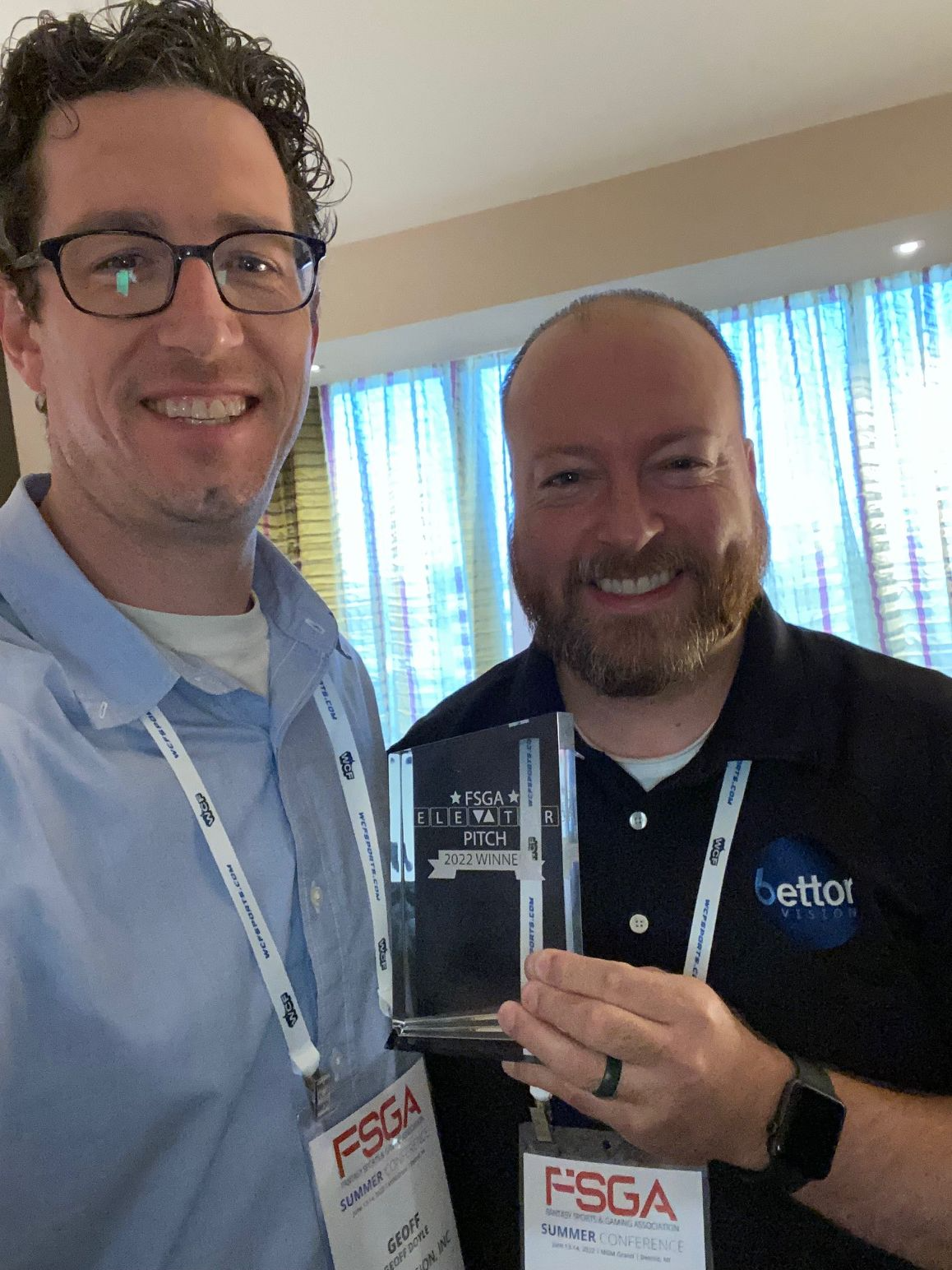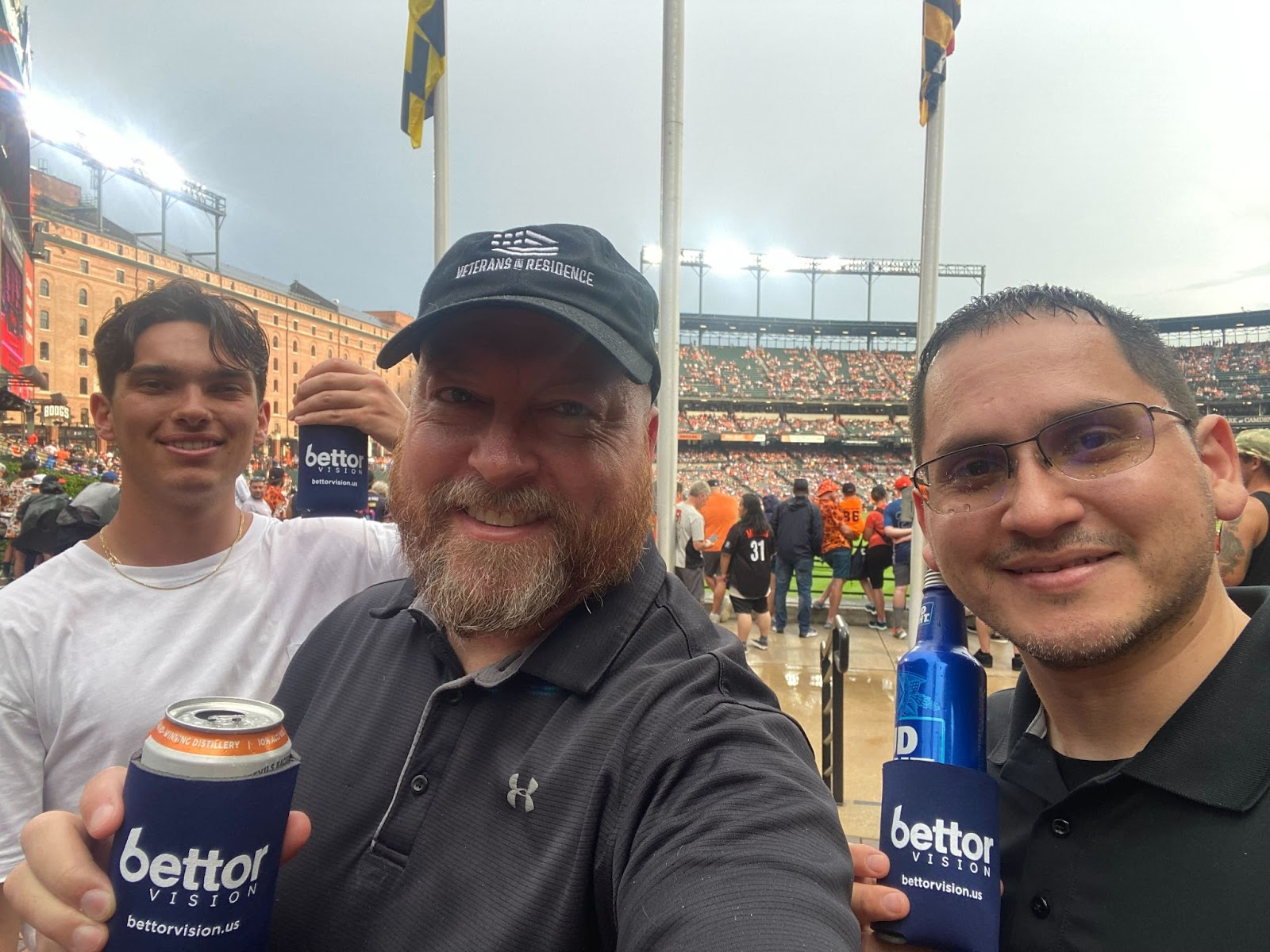
It all started back in high school when I joined a fantasy football league with friends. Over the years, fantasy became more than just a game — it was how I stayed connected with my buddies as I moved around the world during my 20-year Army career. I eventually added more leagues with flight school friends, Army colleagues from different duty stations, and later grad school classmates. At one point, I was in so many leagues across different apps that it became a headache just to keep track.
As I got more confident in my NFL knowledge, I also started playing daily fantasy, and then, after sports betting was legalized in 2019, I began experimenting with multiple betting apps. Suddenly I had ten different apps across fantasy, daily fantasy, and sportsbooks. Managing it all was messy and frustrating, and I kept thinking: why isn’t there a single dashboard that pulls everything together?
When I retired from the Army in 2021, I decided to solve the problem myself. That’s how Bettor Vision was born. Our mission is to simplify the experience for the millions of fans like me who see fantasy and betting as part of the same journey, not separate silos.
I met Geoff while in business school at Wharton. His girlfriend at the time, now wife, was in my cohort, and Geoff and I hit it off right away. We bonded over basketball and sports, and even started a fantasy football league with classmates that we’re still running 15 years later.
Later, the Army assigned me to Chicago, where Geoff was living. He was finishing a master’s in Sports Administration and Data Analytics at Northwestern, where he wrote his thesis on the future of sports betting. That led him to Wagr, one of the first peer-to-peer sports betting startups. When I came up with the idea for Bettor Vision, I called him for feedback. By the end of that call, we knew we wanted to build it together.
After Wagr was acquired by Yahoo, Geoff recruited one of their senior engineers, Steven, to join us. That’s how the team came together.

Our biggest early mistake was assuming we’d be ready for NFL Week 1. We submitted our MVP to Apple and even put out a press release about being ready for the season. What we didn’t realize was that Apple’s legal review process, especially for sports betting apps, takes far longer than the technical review.
Because we were using betting data, Apple required multiple legal opinions, which delayed approval until mid-November. By then, we had missed most of the fantasy and NFL betting season — the core of our user base’s activity. It was a tough hit, both financially and emotionally.
We adjusted by running a small promotional contest to finish out the season, but then regrouped and shifted focus to acquiring fantasy football users the following summer. It was painful, but it forced us to rethink our financial and marketing strategies early.
Yes, we’ve pivoted from an affiliate marketing model to a freemium subscription model. At first, we thought working with affiliate partners would be the best way to monetize, but we realized the true value is in the data and the experience we can offer users directly. We know more about our customers’ complete sports gaming activity than any single sportsbook or fantasy app.
So we shifted to building premium features that users are willing to pay for — features that personalize the experience, save them time, and help them make smarter decisions. That model allows us to grow revenue faster while still building the deeper, data-driven vision for Bettor Vision.

Check out the profile to see their latest milestones and subscribe to stay in the loop with all their updates!
Inspiring founder stories you can’t miss!